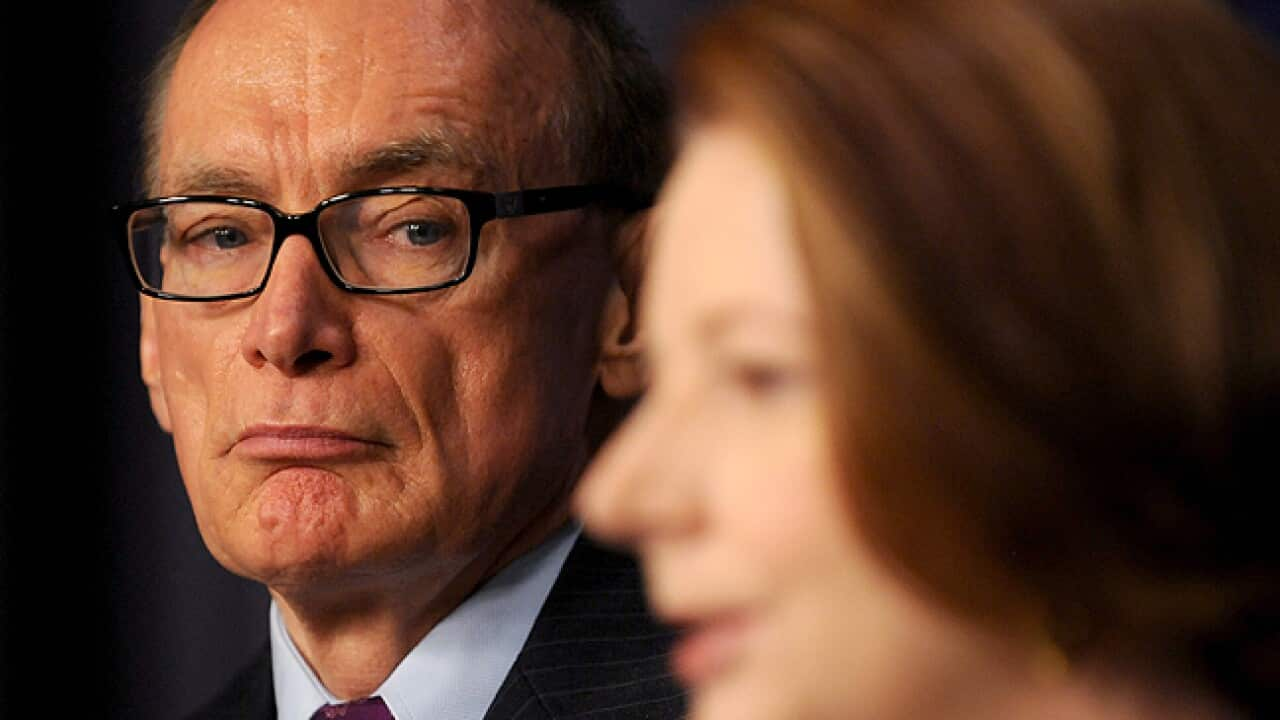Bob Carr is one of the few Australians who could have been fast-tracked straight into the foreign minister's chair, rendering Kevin Rudd unmissed.
Whether that was among Prime Minister Julia Gillard's job requirements is a matter of conjecture.
But there can be no questioning Carr's credentials, and Gillard's ultimately successful Carr-jacking leaves Rudd looking even more lonely on Labor's back bench following his failed leadership challenge.
Carr is an undoubted Labor luminary, and his dramatic entry into federal politics means Gillard has simply swapped one star for another as foreign minister, trumping a leadership rival in the process and losing one "faceless man", Mark Arbib.
Carr, who will take the divisive Arbib's Senate seat, has coveted the foreign minister's job for two decades, so much that he once felt like a "doomed man" when pressed into service as NSW Labor leader in the 1980s when a career in Canberra might otherwise have beckoned.
Rudd's energy and aplomb as foreign minister might be a hard act to follow for many, but Carr enjoys a stature few in his party could match.
He served a record unbroken stint of 10 years as NSW premier before stepping down in 2005, quitting while still at the top.
A bookish lover of history and US politics, rather than sport, he nonetheless basked in the glow of one of Australia's finest hours as the premier who hosted Sydney's 2000 Olympics.
When the troubled federal Labor movement ordered a party review in 2010 it was to Carr that it turned, along with elder statesman John Faulkner and another former premier, Victoria's Steve Bracks.
For the past seven years Carr has been a part-time consultant for the Macquarie Group, Australia's largest financial company, advising it on policy, climate change, renewables and strategic issues with a focus on the United States and China.
The 64-year-old Carr, a former journalist with ABC radio and The Bulletin magazine, showed an early interest in politics, joining his local ALP branch in eastern Sydney as a 15-year-old.
He was the first person in his family to finish high school and went on to complete an arts degree with honours in history at the University of NSW.
He entered state parliament by winning a byelection in 1983 and served as a minister in the Wran and Unsworth governments in the 1980s before beginning a seven-year stint as opposition leader.
He reclaimed a lot of ground for Labor at the 1991 election, forcing Premier Nick Greiner into a minority government, before winning office narrowly against John Fahey in 1995 then recording thumping wins in 1999 and 2003.
Education and conservation were among his most notable achievements in office as he raised literacy rates, created scores of national parks and banned logging in state forests.
He also drastically reduced state debt and invested billions of dollars in infrastructure.
Carr's 22-year political career has elevated him to statesman status, and his bipartisan approach to his new challenge is evident in his intention to seek advice from former Liberal prime ministers Malcolm Fraser and John Howard as well as Labor's Gough Whitlam and former Labor foreign minister Gareth Evans.
Asia will be his immediate priority as he eyes Australia's place in a region dominated by the rise of China and India.
Carr has one other important credential. Asked if he had any aspirations for the Labor leadership, he replied crisply: "No."

